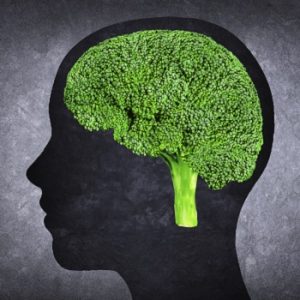
More evidence that low-calorie sweeteners are bad for your health
Studies show that artificial sweeteners can raise the risk of hypertension, metabolic syndrome, type 2 diabetes and heart disease, including stroke.

Natural Health News — There is a growing body of evidence which suggests that certain nutrients can help slow the onset or prevent dementia.
One of these nutrients – sulforaphane – is found in abundance in cruciferous vegetables like broccoli, cauliflower and cabbage.
Alzheimer’s disease is the most common cause of dementia. It is a progressive neurodegenerative disorder characterised by a range of cognitive problems such as deteriorated memory and disorientation, is associated with complex changes in the brain.
Although the causes of Alzheimer’s are still not fully understood, protein deposits forming amyloid plaques and tau tangles throughout the brain are considered to be the major driver for the loss of neurons and synapses. Therefore, most Alzheimer’s disease therapies focus on preventing or breaking down these plaques and tangles.
» The nutrient sulforaphane is found in abundance in cruciferous vegetables like broccoli, cauliflower and cabbage.
» Data from South Korean researchers shows that sulforaphane may have a crucial role to play in protecting the brain from the plaques which are linked to Alzheimer’s disease.
In previous research Dr Jiyoung Kim and his team from Seoul National University have found that treatment with sulforaphane, a secondary metabolite found in these vegetables, in mice leads to increased neuronal levels of brain-derived neurotrophic factor (BDNF) up to comparable levels to healthy neurons. A growing body of evidence indicates that BDNF, produced naturally in the body, is protective against plaques and tau tangles.
Boosting naturally protective proteins
In a new study published in Molecular Nutrition and Food Research, the researchers described an additional mechanism by which sulforaphane could elicit its neuroprotective effects.
Through a series of object/location recognition and other tests, they demonstrated that sulforaphane treatment amended learning and memory deficits in mice with Alzheimer’s. They then linked these beneficial effects of sulforaphane to the upregulation of two additional proteins: a heat-shock protein HSP70 and its co-chaperone named CHIP. These two proteins together help degrade plaques and tau tangles, thereby reducing their build-up in the brain.
This study further strengthens the notion that sulforaphane acts through several mechanisms to help prevent Alzheimer’s. So when our parents told us to eat our broccoli because it was good for us, they were right – especially when it comes to brain health and memory.

Please subscribe me to your newsletter mailing list. I have read the
privacy statement